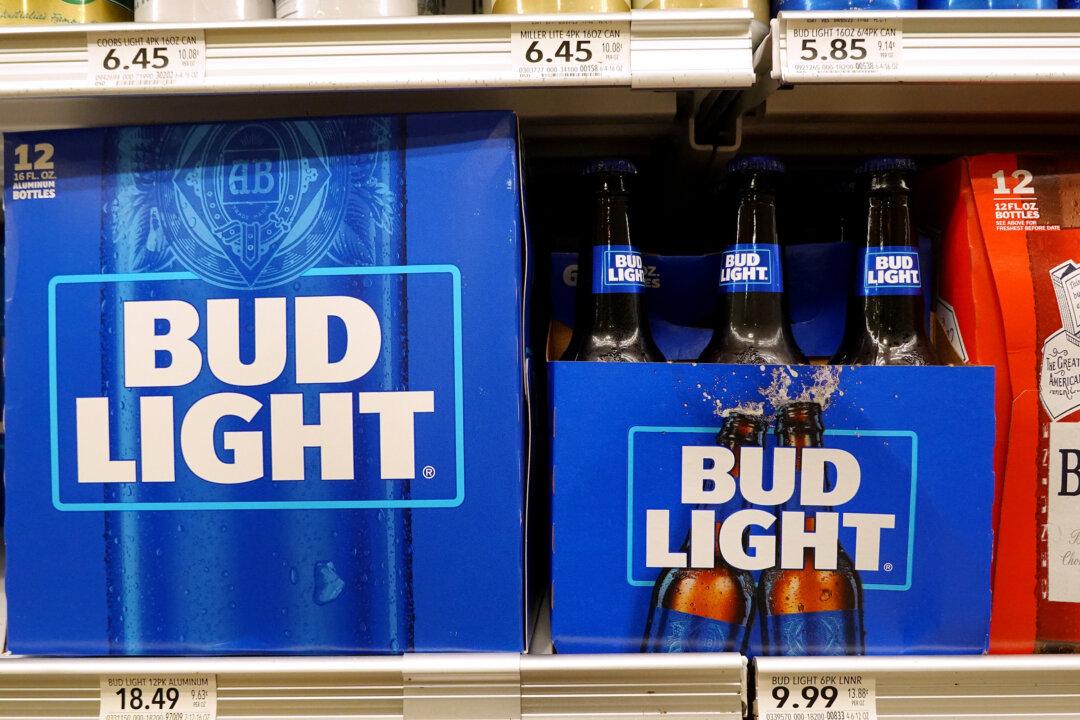Bud Light’s parent company, Anheuser-Busch, announced this week that it will continue to offer financial support to wholesalers in the midst of a months-long boycott following a marketing campaign with a transgender influencer.
In a news release issued on Oct. 18, the brewing giant said it will offer the aforementioned support, fuel surcharge reimbursements, extended credit, and will add a market share recovery initiative for wholesalers. The firm did not make mention of the controversy or Bud Light backlash.





